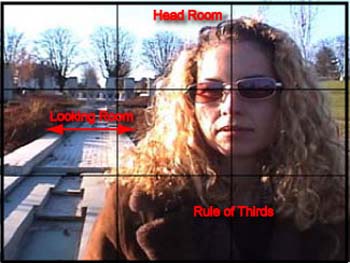Note We’ve written this for everyone to follow so we can develop a certain degree of consistency, but it’s also obviously open to improvisation. If you have any advice for an effective interview, please add to the bullet points below.
Format:
5-10 Minute videos.
Each asking the same set of questions.
Each video should also contain an addition 5-10 minutes free form conversation led by the interviewee.
Guide to achieving a good interview:
- In order to achieve the best outcome from an interviewee it's important to familiarise yourself with the work of the person you're interviewing before hand, at very least read the about section on their website.
- Spend 5-15 minutes at least talking with the person you're going to interview before the interview starts, so you're comfortable with one another and they can respond in a relaxed way on camera.
- Don't be overbearing with the camera, let it fade into the background of your conversation, ideally they're looking into it but this non essential. note from Sam - having the interviewee look straight down the lens is good for crowdfunding or other situations when the speaker is directly addressing the audience, but in this case where the tone is more conversational I don't think it makes sense, and many people are uncomfortable doing it. I would recommend setting up the camera next to the interviewer's head (and leaving it there - no need to run around the place). See diagram:

- Shot composition - follow this diagram:
 There should be some space ('looking room') in front of the interviewee - if this space is behind the person's head it gives the audience the idea that something is going to happen in that space, and someone is creeping up on them from behind - only useful in horror films.
There should be some space ('looking room') in front of the interviewee - if this space is behind the person's head it gives the audience the idea that something is going to happen in that space, and someone is creeping up on them from behind - only useful in horror films. - Make sure they're aware that the video is going to be put online and shared within the EdgeRyders network and further afield, so that they know the scope of their audience in advanced, (fairly specialised but with the desire to share further).
- Give them a sense of the questions you're going to be asking before hand so they can think ahead - but also familarise them with the intended output of the video so they can be conscious of it when responding to the questions (this will make editing easier later). Explain that specifically for these videos we intend to chop up some of the footage as well as producing a standalone video of them - we plan to create a combination video of individuals responding to the question "What does the concept of Stewardship mean to you?"
- Upon asking the initial question "Tell me about your project and work", if they stop short use the other questions "How did you get started", "What are the core objectives" to bulk out the response, hopefully though individuals will understand the need to give a good 2-3 minute overview of their work.
- Allow 5 second breaks between questions, continued conversation makes it difficult to edit later.
- Try to phrase your questions in a way that the interviewee needs to include the context in their response, which will make it much more useful when editing. i.e. the question "Why did you choose radioactive monkeys as a subject for your experiments?" might elicit the response "because I like the way they glow" which is not a very informative sentence without the context of the question. However, this question is better: "I'd like to know what led to you working with radioactive monkeys - can you tell me about some of the reasons behind this decision?" Here the interviewee cannot begin their sentence with a 'because' and they're less likely to use a pronoun to talk about the monkeys, because I mentioned them too far back in my question.
Questions:
Tell me about your project/work?
- How you got started.
- Who's involved.
- What your main objectives are.
What does the concept of Stewardship mean to you?
What do you believe are the most important projects internationally that related to stewardship and the commons in this moment?
Potential additional questions:
What question did I not ask that you think is important and you’d like to respond to?
What do you think will be the greatest challenge for the human race over the next 100 years?
Who is responsible for the future?
What does Stewardship of the commons mean in this moment?
What are the fundamental lessons from the past that we can learn from now?
What is an example of a heroic act in this moment?